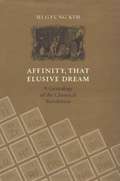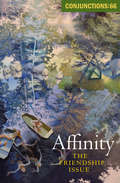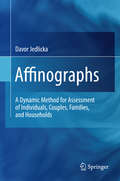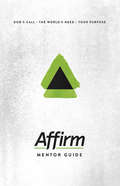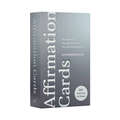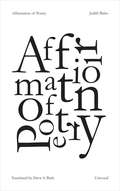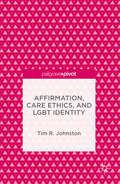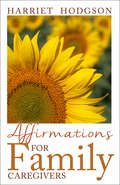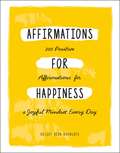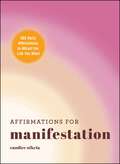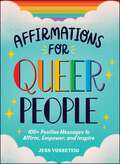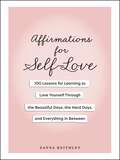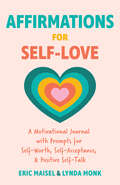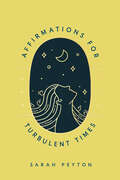- Table View
- List View
Affinity Plus (A)
by Peter Tufano Dennis CampbellThe executive team at Affinity Plus Federal Credit Union has pushed the concept of members first deeply throughout the organization, empowering employees to put member-owners' interests ahead of either the organization's interests or their own interests. As a result of this focus, the credit union must determine what to do with its profitable indirect auto lending business, which some see as inconsistent with the strategic direction set by the management team.
Affinity Plus: Priorities and Performance Pressures
by Dennis Campbell Kyle Thomas Tatiana SandinoCase
Affinity Plus: Priorities and Performance Pressures
by Dennis Campbell Kyle Thomas Tatiana SandinoCase
Affinity, That Elusive Dream: A Genealogy of the Chemical Revolution
by Mi Gyung KimMi Gyung Kim restores chemical affinity to its proper place in historiography and in Enlightenment public culture. The Chemical Revolution is usually associated with Antoine-Laurent Lavoisier, who introduced a modern nomenclature and a definitive text.
Affinity: Reclaiming the Divine Flow of Creation
by Amorah Quan YinAmorah Quan Yin's latest collection of channeled teachings on the nature of spiritual initiation, mystery schools, and how to access energies for personal transformation. • By the author of The Pleiadian Workbook (40,000 copies sold). • More than 25 recorded transmissions from Ascended Masters, St. Germain, Elohim, Mother Mary, and many others. • Includes guided meditations and exercises for everyday life. Learn how to live in divine flow, deepen your spiritual connection to the divine source, and access spiritual guidance in becoming a true Master Being of Light. In her latest series of channeled transmissions, Amorah Quan Yin provides a fascinating chronicle of human spiritual evolution from a galactic perspective. Quan Yin teaches that there is infinite loving assistance available to humanity from the higher dimensions. In Affinity she transmits the wisdom of the Ascended Masters, Angels, and others to assist us in learning how to receive this help and attain personal transformation. Drawing on the wisdom of Goddess Antares and the gentle support of the Dolphin Star Temple Higher Council, Quan Yin explains how to retune our bodies, minds, emotions, and spirits to the divine flow of the universe. Mother Mary teaches us how to remove ourselves from negative astral planes. From Elohim we learn how to work with our cellular structure on a spiritual plane. This extensive collection of teachings offers specific exercises and techniques to align us with our divine selves.
Affinity: The Friendship Issue (Conjunctions #66)
by Jonathan Carroll Joyce Carol Oates Rick Moody Robert Coover Jedediah Berry John Ashbery Robert Clark Elizabeth Gaffney Stephen O'Connor Robert Duncan Sallie Tisdale Matthew Cheney Elizabeth Robinson Tim Horvath Paul Lisicky Darcey Steinke Andrew Ervin Roberta Allen Brandon Hobson Charles B. Stozier Diane Josefowicz Emily Houk Gilles Tiberghien Isabella Hammad M. J. Rey Michelle Herman Spencer Matheson Rachel Blau DuPlessis J. W. McCormackNew writings on the topic of friendship from Stephen O&’Connor, Joyce Carol Oates, Robert Clark, Elizabeth Gaffney, Rick Moody and Darcey Steinke, and more. Aristotle proposed that a friend is, in essence, &“another self,&” and it is indisputable that our relationships with our friends are nearly as complex as the ones we have with ourselves: One minute we&’re in perfect accord, another we&’re uncertain. Friendships are as mercurial as they are essential. We form friendships that are fraught, friendships that fade, and friendships that are as important to us as our very lives.Conjunctions: 66, Affinity investigates the phenomenon of friendship in its many forms through innovative and provocative fiction, poetry, and essays by writers of every ilk.This collection includes contributions by Rick Moody and Darcey Steinke, Robert Coover, Rachel Blau DuPlessis, Elizabeth Gaffney, Andrew Ervin, Stephen O&’Connor, Gilles Tiberghien, Michelle Herman, Robert Clark, Jonathan Carroll, Sallie Tisdale, Robert Duncan, Jedediah Berry and Emily Houk, Diane Josefowicz, Brandon Hobson, Charles B. Strozier, Spencer Matheson, Paul Lisicky, John Ashbery, J. W. McCormack, Isabella Hammad, Tim Horvath, Roberta Allen, M. J. Rey, Elizabeth Robinson, Matthew Cheney, and Joyce Carol Oates.
Affinographs: A Dynamic Method for Assessment of Individuals, Couples, Families, and Households
by Davor JedlickaThe need for a new method for assessment and imaging of families, couples, and individuals has emerged in response to changes in family forms during the twentieth century. In the twentieth century divorce, remarriage, out-of wedlock child bearing, and alternate life styles have replaced monogamy as predominant form of marriage and the family. The methods of representation and assessment on the other hand remain based on the nineteenth century eugenics models embedded in the modern day genograms. This book is based on the premise that changes in family structure require changes in methods of representation, assessment, research, and teaching. This book introduces such a method in the form of a model named the affinograph. The affinograph provides a method which allows a greater respect for individuals, especially if their relationships contradict the preconceived institutional notions of marriage and the family. Improvement in visualizing families of various types and complexities can make affinographs an important new method that can bring together the theory, research, and application across varied disciplines that comprise family sciences.
Affirm Mentor Guide: God's Call/The World's Need/Your Purpose
by Jen Bradbury Sara Galyon Audrey Elizabeth WilderAffirm is a one-of-a-kind resource that aims to help teens take the next steps in following Jesus after making their initial commitment of faith.With the Affirm mentor guide, you will be equipped to be a trusted guide that helps students along this path. Being a disciple of Jesus can be incredible, but it can also be challenging. None of us can do it alone and we all need mentors along the way.
Affirm Parent Guide: God's Call/The World's Need/Your Purpose
by Jen Bradbury Sara Galyon Audrey Elizabeth WilderThe journey of faith is spectacular, full of wonder and discovery, but it is also challenging, filled with questions and doubt. This is doubly true for teens who navigate the journey of discovering their faith, while simultaneously discovering themselves. As teens change and grow, so does their faith.Affirm recognizes the difficulties and anxieties that emerge from raising a young person to be faithful. In response, the Affirm Parent Guide provides parents will the tools to be companions to their teens on this journey. As a parent, you’ll be invited to reflect on your own faith, so that you can help them as they learn about their own. The Affirm Parent Guide is full of helpful tips and activities to use as you both strive to grow in your faith and deepen your relationship with Christ.
Affirmation Cards: How We Heal through Self-Love, Joy, and Manifestation
by Alexandra ElleFrom bestselling self-care author Alexandra Elle, this empowering deck makes it easy to cultivate confidence, joy, and mindfulness in everyday life.Affirmation Cards is a deck of 55 cards, each featuring an uplifting affirmation on the front and a meditation practice on the back. Organized into six categories—Self-Love, Personal Power, Self-Trust, Letting Go, Boundaries, and Healing—these cards are designed to help you tap into moments of peace, clarity, and connection in your day-to-day life. Delivered in a luxe, take-anywhere package, this deck is a gorgeous accessory for wellness enthusiasts, meditators, and fans of Alexandra Elle.EXPERT WISDOM: Alexandra Elle is a leading voice in wellness and a New York Times bestselling author. Her work has been featured by a wide range of media outlets, including the New York Times, NPR, Good Morning America, Essence, MindBodyGreen, Forbes, among many others. This deck is inspired by the popular affirmations Alex shares with her fans online, offering readers bite-size practices that make it simple to incorporate positivity into daily life.EASY SELF-CARE: Brimming with 55 affirming practices, this deck makes it easy to incorporate profound self-care practices into busy days. The portable, on-the-go format makes it the ideal accessory to keep in your bag so that you can pull a card whenever you need a mindful moment.BEAUTIFUL TO GIFT AND DISPLAY: Delivered in a stylish, eye-catching package filled with 55 shimmering cards, Affirmation Cards is a beautiful gift for anyone interested in self-discovery, meditation, and mindfulness and a stylish companion for the spiritually curious.ENDLESS POSSIBILITIES: This interactive and uplifting deck can be used in a variety of ways: pull one card a day to start your morning with positivity, pull several cards at once to set an intention for the week, or keep a favorite card on the bedside table for everyday encouragement.Perfect for:• Fans of Alexandra Elle and her popular self-care publishing including How We Heal, After the Rain, and In Courage Journal• Meditators, yoga enthusiasts, and anyone interested in self-healing and personal development• Birthday, graduation, or wellness gift givers looking for gifts for for poets, writers, healers, caretakers, and all who can benefit from the power of positive thinking• Fans of Yung Pueblo, Rupi Kaur, Nedra Tawwab, and the Nap Ministry
Affirmation of Poetry (Univocal)
by Judith BalsoSince the times of Plato and Aristotle, the relation of poetry to philosophy has been controversial. For certain scholars, poetry should in no way be confused with philosophy. For others, poetry is at the heart of the possibility of thinking itself. In Affirmation of Poetry, Judith Balso defends the significance of poetry as a necessary practice for thinking. For Balso, if reading poetry properly has become an obscure task, poetry itself still carries with it a power of thinking: the efforts of the poets must continue. In analyzing the affirmation of thought found within the work of such poets as Osip Mandelstam, Wallace Stevens, Alberto Caeiro, and Giacomo Leopardi, Balso reestablishes poetry&’s place as a site of thought.
Affirmation, Care Ethics, and LGBT Identity
by Tim R. JohnstonIn this book, Johnston argues that affirmation is not only encouragement or support, but also the primary mechanism we use to form our identities and create safe spaces. Using the work of feminist care ethics and the thinking of French philosopher Henri Bergson to examine responses to school bullying and abuses faced by LGBT older adults, he provides the theoretical analysis and practical tools LGBT people and their allies need to make all spaces, public and private, spaces in which we can live openly as members of the LGBT community. With its combination of philosophical theory and on-the-ground activist experience, this text will be useful to anyone interested in philosophy, women's and gender studies, psychology, aging, geriatrics, and LGBT activism.
Affirmations
by Cathy GuisewiteLeave it to Cathy to get us in touch with those life-affirming interactions and activities that we all need to reach our perfect selfdom.
Affirmations & Crystals: 365 Crystals, Messages and Affirmations to Empower You Every Day of the Year
by Claire TitmusDiscover what crystal wisdom awaits every day of the year in Affirmations & Crystals. In this beautiful book, Claire Titmus, owner of The Crystal Bar, delivers 365 undated messages and affirmations to support you every day of the year. Each daily entry is matched to a crystal to raise your vibrations, empowering you to incorporate more crystals into your everyday life. Work through the pages one-by-one, using the book as a crystal calendar, or flick through its pages, using your intuition as a guide, and land on the affirmation the Universe wants to reveal each day. How you use Affirmations & Crystals is unique to you – whether you're looking to make crystals a part of your morning ritual, build more self-care into your routine via empowering affirmations, or simply to refer to the messages for guidance, as and when you need them. Let this book support you on your spiritual journey. Unlock the power of your intuition and discover what the Universe has in store for you with Affirmations & Crystals. Your daily message is waiting...
Affirmations for Every Day: Mantras for Calm, Inspiration and Empowerment
by Gilly Pickup Summersdale PublishersCalm. Centred. Inspired. Just a few words said with purpose can give you inner strength that will last all day. Let these calming mantras, simple tips and beautiful images empower you, and help to anchor you to the here and now.
Affirmations for Every Day: Simple Tips and Empowering Mantras to Help You Set Your Intentions
by Summersdale PublishersThis beautiful book is filled with simple tips and affirmations to help you feel calm and confident every dayAn affirmation or mantra is a short phrase that focuses your attention. Whether you want to inspire confidence, a sense of calm or a positive mindset within yourself, they are a powerful way to declare your intentions and set yourself on track.As well as a beautiful selection of words from writers and thinkers, and 40 inspiring mantras, within these pages you will find a raft of simple but effective tips to help you master the art of affirmations, including:How to write an effective affirmationUsing affirmations to achieve your goalsWays to cultivate an open and positive mindsetJust a few words said with purpose can give you inner strength that will last all day. Tap into this power with the guidance in this book, and allow these words to inspire you on your life’s journey.
Affirmations for Every Day: Simple Tips and Empowering Mantras to Help You Set Your Intentions
by Summersdale PublishersThis beautiful book is filled with simple tips and affirmations to help you feel calm and confident every dayAn affirmation or mantra is a short phrase that focuses your attention. Whether you want to inspire confidence, a sense of calm or a positive mindset within yourself, they are a powerful way to declare your intentions and set yourself on track.As well as a beautiful selection of words from writers and thinkers, and 40 inspiring mantras, within these pages you will find a raft of simple but effective tips to help you master the art of affirmations, including:How to write an effective affirmationUsing affirmations to achieve your goalsWays to cultivate an open and positive mindsetJust a few words said with purpose can give you inner strength that will last all day. Tap into this power with the guidance in this book, and allow these words to inspire you on your life’s journey.
Affirmations for Family Caregivers: Words Of Comfort, Energy, And Hope (Family Caregivers Series #2)
by Harriet HodgsonHarriet Hodgson has cared for three generations of family members--her mother, husband, and twin grandchildren. The affirmations in this book come from Harriet's eighteen years of caregiving experience, with more years to come. In 2013 her husband's aorta dissected and he had three emergency operations. Surgeons managed to save her husband's life, but he suffered a spinal stroke during the last operation, and his legs are paralyzed. Hodgson is his caregiver and, when she needed a boost, she started writing affirmations. Once she started, Hodgson couldn't stop writing them, and a few dozen grew into the hundreds in this collection. "Affirmations are a form of self-care," Hodgson explains. "Reading an affirmation in the morning can set the tone for your caregiving day."
Affirmations for Happiness: 200 Positive Affirmations for a Joyful Mindset Every Day
by Kelsey Aida RoualdesBring happiness into your life with these 200 inspiring, smile-inducing, positive affirmations that will brighten your day and help you embrace joy from within.Affirmations are a powerful tool to bring joy into your life. Both inspiring and mood-boosting, these positive phrases are the perfect way to cheer you up and help you live a more positive lifestyle. Infuse your day with happiness by using these encouraging affirmations to help you find something to smile about anytime of the day. You can find the message that&’s perfectly suited for you from this appealing collection of 200 short, simple, and easy-to-remember phrases. From acknowledging the good around you to cherishing simple pleasures, these quick affirmations will lift your spirits and put a smile on your phase regardless of what you might be going through.
Affirmations for Manifestation: 365 Daily Affirmations to Attract the Life You Want
by Candice NikeiaFocus on positivity, build self-love, and change your life with this daily devotional-style book featuring 365 affirmations from popular influencer and daily motivational speaker Candice Nikeia. Harness the power of daily affirmations to manifest the life you&’ve always dreamed of! Affirmations for Manifestation is an inspiring collection of daily affirmations that helps you shift your mindset, focus on positivity, and channel your inner power to create the changes you wish to see in the world around you. Touching on common goals for everyday life—from improving your career, to strengthening your relationships, to building your self-esteem—this book is a daily guide to manifesting change. With guidance from popular manifestation influencer Candice Nikeia, this book gives you the tools to heal, grow, and love yourself more than ever. By approaching these affirmations with an open mind, you&’ll soon see the benefits of positive thinking. Whether you&’re in need of a quick boost on a tough day or looking for a way to share more joy with the world, this book has the affirmations you need. Get started on your affirmation journey today!
Affirmations for Queer People: 100+ Positive Messages to Affirm, Empower, and Inspire
by Jess VosseteigCelebrate your resilience and bravery in the face of discrimination and empower yourself and your community with these 100+ affirmations for queer people that celebrate being LGBTQIA+.Queer people are essential members of society—trailblazing for positive change and building up a stronger and more vibrant community every day. It&’s time to affirm these truths and so many more with Affirmations for Queer People. In this book, discover more than 100 affirmations to empower yourself, emphasize your self-worth, care for your mental health and emotional well-being, and so much more. You can use these affirmations and the accompanying texts to reflect on your own life and your future. You&’ll find amazing, inclusive artwork throughout that speaks to the beauty, bravery, and diversity of this incredible community. With Affirmations for Queer People, celebrate being a queer person, affirm your talent and worth, and bring your dreams to fruition.
Affirmations for Self-Healing
by J. Donald WaltersContains 52 affirmations and prayers devoted to strengthening qualities such as will power, patience, good health, forgiveness, security, and happiness.
Affirmations for Self-Love: 100 Lessons for Learning to Love Yourself Through the Beautiful Days, the Hard Days, and Everything in Between
by Zanna KeithleyDiscover the power of self-love with this inspiring collection of empowering affirmations and reflections on self-improvement, personal growth, mindfulness practices, joy, and abundance, crafted by poet and social media standout Zanna Keithley.The more I follow my heart, the more beautiful life becomes. Author, poet, and social media creator Zanna Keithley guides you on a powerful path of self-improvement, mindfulness, and personal development in her uplifting book, Affirmations for Self-Love. Page by page, Keithley&’s empowering affirmations and inspiring words help you trust your inner voice, follow your heart&’s true calling, and fully embrace your authentic self. A fulfilling and joyful life begins by practicing daily self-care, listening to your intuition, and choosing the most loving action in every moment. And this collection of positive affirmations and reflections helps you set intentions for joy, attract abundance, and create the beautiful, authentic life you deserve.
Affirmations for Self-Love: A Motivational Journal with Prompts for Self-Worth, Self-Acceptance, & Positive Self-Talk
by Eric Maisel Lynda MonkA Guided Journal for Self-Worth and Self-AcceptanceA motivational journal with prompts, positive affirmations, inspirational quotes, and age-old wisdom, Affirmations for Self-Love is an invitation to listen to your inner self and be inspired. An oasis of peace, serenity, and love. The world is a noisy, distracting place. Affirmations for Self-Love is full of uplifting words and energy from the world’s wisdom traditions that support you as you find moments of calm and respond to heart-opening journal prompts.A space for self-expression and deep thinking. Let the uplifting, positive affirmations in this guided journal lead you on an inspirational journey towards self-acceptance and self-worth. Express yourself deeply and think and feel in ways that increase your confidence as you interact with this motivational journal.Discover words of encouragement and strength from two prominent experts in the self-love journal writing field, nationally-renowned psychologist Eric Maisel and preeminent journaling expert Lynda Monk. Inside this self-love affirmations journal with prompts, you’ll find:Built-in space for self-reflection to reduce stress, increase self-esteem, and maintain positive mental healthAffirming, inspirational quotes from the world’s wisdom traditions that guide your journaling with gentleness and encouragementA unique combination of expertise in self-development that offers a journaling tool and process that guides readers to deeper self-understanding and empowermentIf you liked motivational journals with prompts and positive affirmations such as Badass Affirmations; Seen, Loved and Heard; A Year of Self-Love Journal; or Soul Therapy, you’ll love Affirmations for Self-Love.
Affirmations for Turbulent Times: Resonant Words to Soothe Body and Mind
by Sarah PeytonMore than 100 themes of affirmations grounded in neuroscience. We live in complex and unsettled times. The issues before us are unimaginably difficult, and range from the personal to the global. This beautiful little book accompanies readers toward a greater sense of peace and self-compassion, reminding us that even though our world is so turbulent, we can still have quiet places within, filled with love, that make it easier to live and to breathe with ourselves. Rooted in the neuroscience of affirmations, and covering more than 100 themes (including health, self-care, issues at work, and connection with loved ones and with the planet), this book is a companion for daily life. With the help of questions and wonderings about what may be important for readers, the book gently encourages acceptance of what is. The affirmation for each theme reminds readers of their own strengths and reservoirs of calm, and helps them to remember and reclaim their innate gifts and resources.

